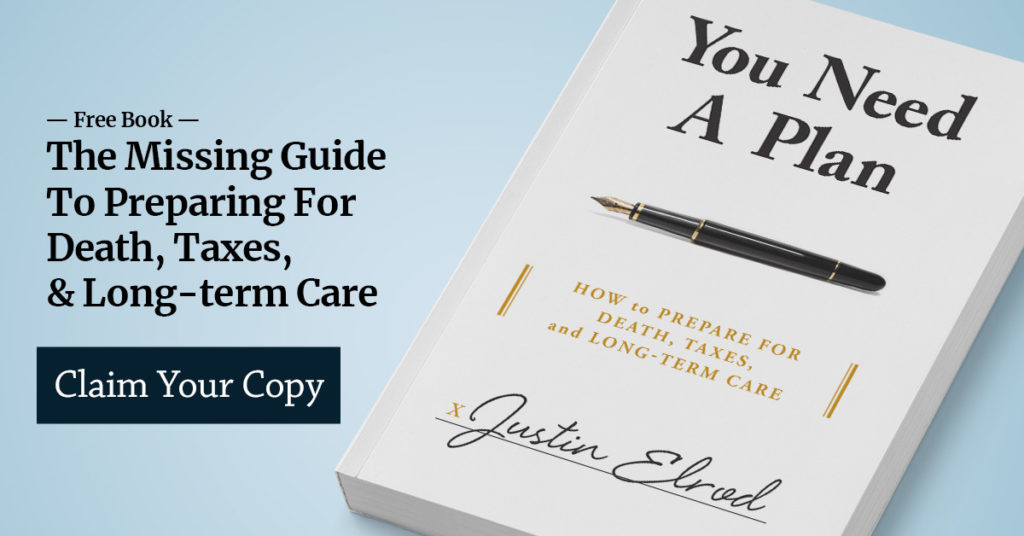Estate Planning
Decide what will happen to your estate and have peace of mind, knowing it will go into the right hands, in the right way.
Make a plan to ensure the people and things that matter most are protected.
Estate Planning involves setting up wills and trusts to manage your affairs and protect your family after you’re gone. Whether you’re worried about the cost and hassle of probate court, you have young children who would need protection if you were gone, or you’re an older couple with concerns about leaving an inheritance directly to your adult children, you should be thinking about Estate Planning.
Avoiding Probate Court
The primary goal of most Estate Plans is to protect your family from probate court. In Arkansas, probate must last at least six months, and most cases last much longer. The process is very expensive and very public. The Elrod Firm offers clients a number of estate planning options to avoid probate court altogether.
Revocable Living Trust
One estate planning tool that is often used to bypass the probate process is the Revocable Living Trust. This Trust is much like a Last Will and Testament in that it lays out a client’s last wishes for handling affairs after death. Unlike a Will, however, this Trust does not pass through probate court.
Where a client using a Will would nominate an executor, a client using a Revocable Living Trust would nominate a trustee to manage his or her affairs after death. In both a Will and a Trust, clients can direct who should receive what assets when the clients are gone. But where an executor must take a Will to probate court to carry out these wishes, a trustee of a Trust is not required to go through the probate court.
We can include terms in a Revocable Living Trust to protect our clients’ heirs from themselves, from others, or from both. We often include language in our Trusts that allows our clients’ heirs to keep their inheritance separate from their personal assets, protecting those inherited assets from creditors in a bankruptcy, from a spouse in divorce proceedings, or from an opponent in litigation. When needed, we can also include terms preventing our clients’ heirs from gaining direct access to their inheritance, to protect them from themselves.
Taking Care Of Young Children
For clients with young children, much more thought is often put into the distribution plan. Most clients do not want young children to receive their entire inheritance all at once on their 18th birthday. We can include terms that spread out the distribution over a number of years, and terms that limit for what purchases or costs the inheritance can be used.
Additionally, significant discussion centers on the individual or entity named as trustee of the trust, because this trustee will be responsible for the children’s financial wellbeing for as long as our clients want to restrict the children’s access to the inheritance. It is also imperative for clients to nominate a guardian for their minor children. This individual will be responsible for the children’s day-to-day care, whereas the trustee will be responsible for the children’s financial wellbeing. The guardian and the trustee can be, but need not be, the same person.
Our clients typically serve as trustees of their own Revocable Living Trusts as long as they’re willing and able. This means they retain complete control of every aspect of their Trust. They can use the property in their Trust without restriction, rearrange assets at will, sell trust property, and add new property to their Trust. They can also amend the terms of their Trust at any time. The Revocable Living Trust is one of the most flexible estate planning tools out there.
Avoiding Guardianship Court
Another focus of estate planning is preparing for the time when our clients might need help from a family member or other trust individual to take care of your day-to-day affairs. It is important to plan for this so that your family doesn’t have to go through guardianship court to help you when the time comes.
Power Of Attorney
We often recommend that our clients appoint powers of attorney for both financial and healthcare matters. Doing so can help reduce or even eliminate the need for a guardianship in the future. A general durable power of attorney can handle the business and financial affairs of our clients if and when our clients are no longer able to manage those affairs themselves.
A healthcare power of attorney can help manage our clients’ medical treatment if and when they can’t manage their own healthcare matters. Many clients designating healthcare powers of attorney will also execute living wills or advance directives to make clear their wishes for end-of-life care. It is also important to execute documents that give appropriate individuals access to medical records in light of current HIPAA laws restricting access to such information.
Recent Estate Planning Posts


Why You Need a Good Elder Law Attorney (and How to Find One)

Recent Estate Planning Questions
Ready to make your estate plan? We're here for you.
You don’t have to go another day without a plan. We can help develop an estate plan that fits your unique situation.


